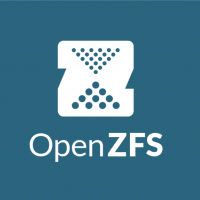ZFS uses any free RAM to cache accessed files, speeding up access times; this cache is called the ARC. RAM is read at gigabytes per second, so it is an extremely fast cache. It is possible to add a secondary cache – the L2ARC (level 2 ARC) in the form of solid state drives. SSDs may only be able to sustain about half of a single gigabyte per second but this is still vastly more than any spinning disk is able to achieve, and the IOPS (in/out operations per second) are also typically much, much higher than standard hard drives.
If you find that you want more high-speed caching and adding more RAM isn’t feasible from an equipment or cost perspective a L2ARC drive may well be a good solution. To add one, insert the SSD to the system and run the following:
zpool add [pool] cache [drive]
e.g.:
zpool add kepler cache ata-M4-CT064M4SSD2_000000001148032355BE
zpool status now shows:
NAME STATE READ WRITE CKSUM
kepler ONLINE 0 0 0
raidz2-0 ONLINE 0 0 0
ata-WDC_WD20EARX-00PASB0_WD-WMAZA7352713 ONLINE 0 0 0
ata-WDC_WD20EARX-00PASB0_WD-WCAZAA637401 ONLINE 0 0 0
ata-WDC_WD20EARS-00MVWB0_WD-WCAZAC389999 ONLINE 0 0 0
ata-WDC_WD20EFRX-68AX9N0_WD-WMC300005397 ONLINE 0 0 0
ata-WDC_WD20EARX-00MMMB0_WD-WCAWZ0842074 ONLINE 0 0 0
ata-WDC_WD20EARX-00PASB0_WD-WMAZA7482193 ONLINE 0 0 0
cache
ata-M4-CT064M4SSD2_000000001148032155BE ONLINE 0 0 0
You can see that the cache drive has been added to the bottom of the pool listing.
The way the ARC works is beyond the scope of this post – suffice to say for the moment that simply adding a L2ARC is not necessarily going to improve performance in every situation, so do some research before spending money on a good SSD. Check back for a more detailed investigation into how ARC and L2ARC work in November!
